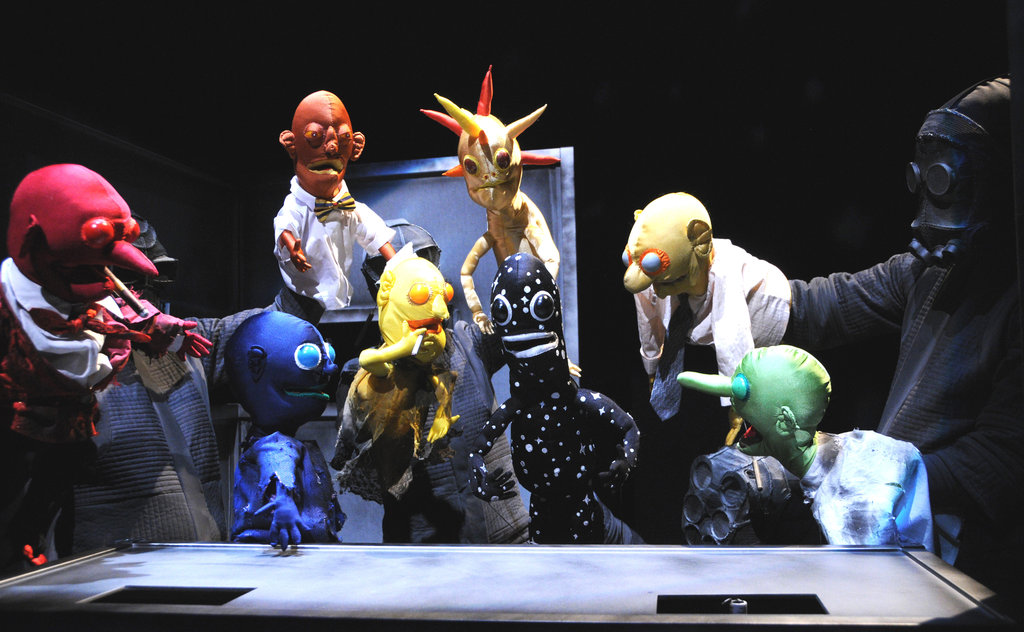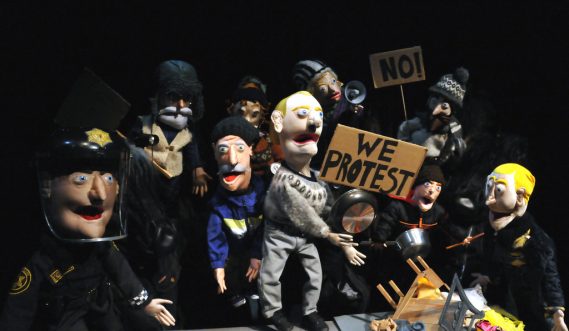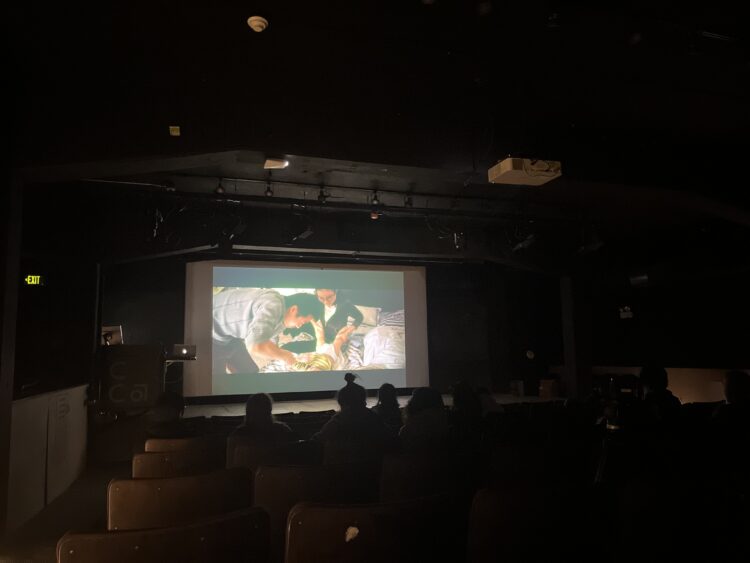Wakka Wakka’s “MADE IN CHINA” Uses Puppets to Tell a Serious Story

The performance group Wakka Wakka produces puppet shows that tackle relevant social and political issues like climate change, financial crisis, consumerism and human rights. Baby pandas, dancing appliances and romping middle-aged lovers populate Wakka Wakka’s universe of tiny-to-huge puppets, belting out original songs. As with climate change in Baby Universe and the global financial crisis in Saga, the company spins issues of our times into a vastly entertaining tale with surreal dimensions, lots of laughs and powerful take-aways. MADE IN CHINA features 30 puppets, seven puppeteers, music inspired by both American and Chinese traditions, and animated video. MADE IN CHINA premieres Off-Broadway in January, 2017 at 59E59.
Creative Producer, Gabrielle Brechner, answered a few questions about the evolution of Wakka Wakka since its founding in 2001 and the development of MADE IN CHINA.
Hillary Bonhomme: How did Wakka Wakka evolve into full puppet productions and how much do the actors using the puppets influence the story and the puppet they’re bringing to life?
Gabrielle Brechner: Full puppet productions came a few years after the founding of Wakka Wakka, and the company was not founded as a “puppet company.” That being said, all three of us grew up loving puppetry, and objects and visual theater were always at the forefront of our work. The transition from actors to puppets was an organic one for many reasons, because really, they were always there. They were always a huge part of our work, even when we were doing modern clown work and cabaret acts.
Ultimately, we moved to full puppet productions because we found that as we shifted more and more towards puppetry, the impact of the stories we were telling became profound in unexpected ways, and the scope of the stories we were able to tell became vast in ways it never was with only people. Also, it allowed us to keep the comedy and silliness we all love so much, and yet still address serious issues and impart deep meaning in the work. In fact, I think we moved towards puppets because we realized that the meaning of the work increased exponentially when we used puppets. A lot of that can be attributed towards the puppets Kirjan builds—they’re sweet, they’re expressive, and they’re familiar on a level that taps into childhood—because of all of that, people immediately connect to them.
I’ve found that in (well done) narrative drama, it takes an audience far less time to suspend disbelief with puppets than with actors. It seems counter-intuitive, but it’s been my experience without fail.
I’ve found that in (well done) narrative drama, it takes an audience far less time to suspend disbelief with puppets than with actors. It seems counter-intuitive, but it’s been my experience without fail. The audience is invested deeply in the puppets because in fact, it’s the audience who decides what the puppets feel or mean or think in any given moment. Puppetry requires that. They only have one actual expression, because they’re objects. So the words they speak and the movements they do, up to a point, project intention, but the audience has to do the rest of the job – assign those movements and words to a feeling or thought. The audience is required to work, to participate in the experience in a way they don’t have to in narrative drama, and that draws them in right away.

A scene from “Saga,” from Wakka Wakka Productions and the Nordland Visual Theater. Credit Jim Baldassare
Hillary: In your presentation from 2015 Artist Retreat you talked about how difficult it was to find someone to write music for this very political musical comedy, and how because of that, the project was held up for some time. Did that add some momentum to mounting this work, or did you have to constantly push against a tendency to call the whole thing off?
Gabrielle: We never had to push against a tendency to call the whole thing off, but it most definitely did not add momentum either! It just stalled us. We always knew we would push forward, and as much as I hate it when people say “everything works out the way its supposed to,” in this case, it was absolutely true. The first two years of putting this show together, we mostly worked “on paper.” It was research and fundraising and team assembling. And when you grant write, you get an idea on paper of what the show is – and that’s never what the show winds up being. So in our minds, we had this score that was very much a fusion of Chinese and American folk traditions—lots and lots of strings and was perhaps much more serious and gorgeous than what it wound up being. And we were hoping for a high profile name. But when people were scared off of the work, or unsure if we would handle the issues properly, we had to rethink our approach. And if that had not happened, the show would not be nearly as good as it is.
We found our artistic/composer soul mate in Yan Li. He is insanely funny, his lyrics are among the most nuanced I’ve ever heard, and his compositions are expressive and smart and beautiful. He introduced a “Broadway Musical” sensibility to the show that we never expected, but that makes perfect sense.
So the short answer is that the process sucked, but it did lead us to an infinitely better collaborator and a far superior show to the one we would have had if we had gotten everything we wanted out of the gate.
Hillary: Because the goal of this work is to communicate a real story, have parts of MADE IN CHINA been adapted in response to the 2016 presidential election?
Gabrielle: None of us wanted the election to go the way it did. I actually had to quit Facebook in the wake of the election, because the constant news stream became too devastating—to the point that it was inhibiting my ability to focus on the show and my children. But the ONLY silver lining I’ve been able to find is that it gave our show a deeper resonance. We changed almost nothing. We do have one or two elements that refer directly to the president-elect, but they were already there in a slightly different incarnation. Woven through the show, without being too heavy-handed, have always been themes of human rights and freedom of speech.
And there’s, of course, a constant urging on our part for the audience to subconsciously compare the US to China. All of that was already there, but the meaning has shifted dramatically now. We did wind up asking Yan to write a new finale for the show just two weeks ago—not because of the election, but because what we had wasn’t working. And what he wrote is perfect, and reinforces how much the landscape of the show shifted from analysis to caution in a way that is quite profound.
Wakka Wakka’s MADE IN CHINA is currently running Off-Broadway at 59E59 Theaters until February 19, 2017.
